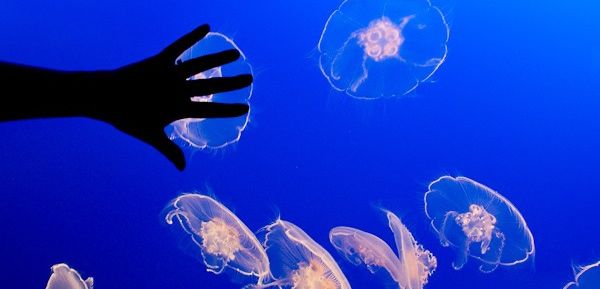Day one at the AAAS conference in Vancouver
New research emerges about Stonehenge’s auditory magic and how to grow food in the desert
Share

Kate Lunau is covering the 2012 annual meeting of the American Association for the Advancement of Science in Vancouver, a gathering of some of the world’s finest brains and celebrities of science. On Feb. 16-20, Lunau will bring you a sneak peak of the latest research and findings, posting to Macleans.ca on anything from healthcare and climate change, to food security, and more. Follow her on Twitter: @Katelunau, #AAAS, #AAASmtg and read her intro here: Introducing the world’s biggest Science Fest
Vancouver was rainy but warm on Thursday as people started piling into the Convention Centre for the Annual Meeting of the American Association for the Advancement of Science, one of the biggest gatherings of scientific minds anywhere (there’s about 8,000 people here). They’ve come from all over: I met visitors from Singapore, Hawaii, Ireland, across the U.S. and Puerto Rico, some saying they’d expected Canada to be a lot colder and snowier. Some are here presenting new research, but many are just interested in the science–or networking: I overheard one woman describing her start-up business in “wireless toilets.”
The meeting had yet to get into full swing on Thursday, but new research was already being announced: for example, this incredible bit on a new theory about Stonehenge, and how it may have been built to create a certain kind of mysterious, auditory illusion. That work will be fully presented later today, and I’m hoping to go.There’s a lot of talk about how it’s the first time in 30 years this meeting has been held in Canada—the AAAS is, after all, the American Association for the Advancement of Science—and Thursday’s opening ceremony was heavy on Canadian content, starting with a traditional blessing from two representatives of the Coast Salish First Nations. Andrew Petter of Simon Fraser University, Stephen J. Toope of the University of British Columbia, and Neil Turok of the Perimeter Institute for Theoretical Physics are all co-chairs–each took the stage to discuss the meeting’s theme, the global knowledge society. Nina Fedoroff, AAAS president and a renowned geneticist and biologist, gave the final address of the night, discussing her efforts to grow crops in the desert landscape of Saudi Arabia, which has important implications for the world food supply of the future, as the temperature warms and fresh water becomes more scarce. At a reception afterwards, Governor General David Johnston welcomed the crowd as the massive blue Olympic Cauldron was lit behind him.
After the opening ceremony had wrapped up, journalists were packed on a shuttle bus and taken off to the Vancouver Aquarium to drink wine and snack on finger foods surrounded by glowing fish and jellies, a setting that felt appropriately surreal.